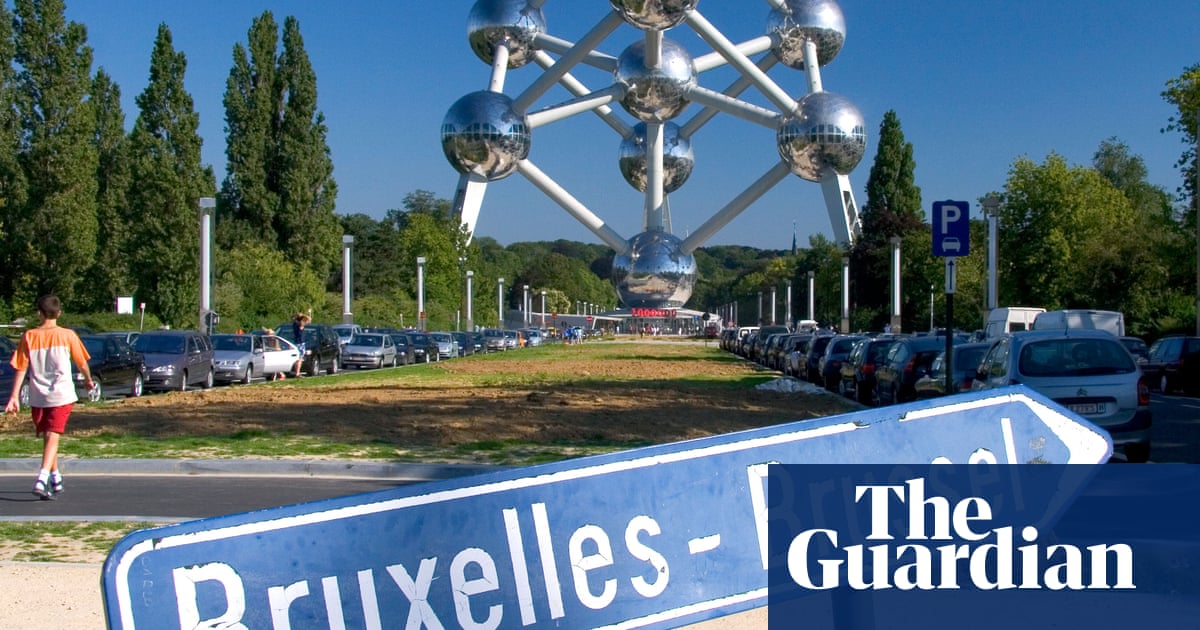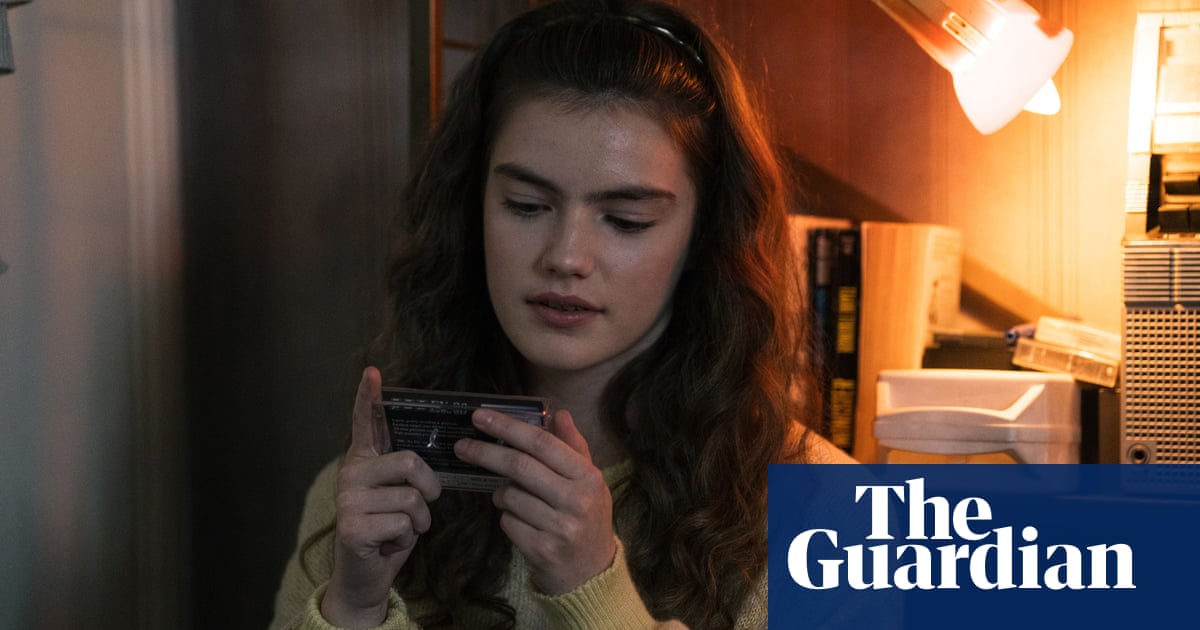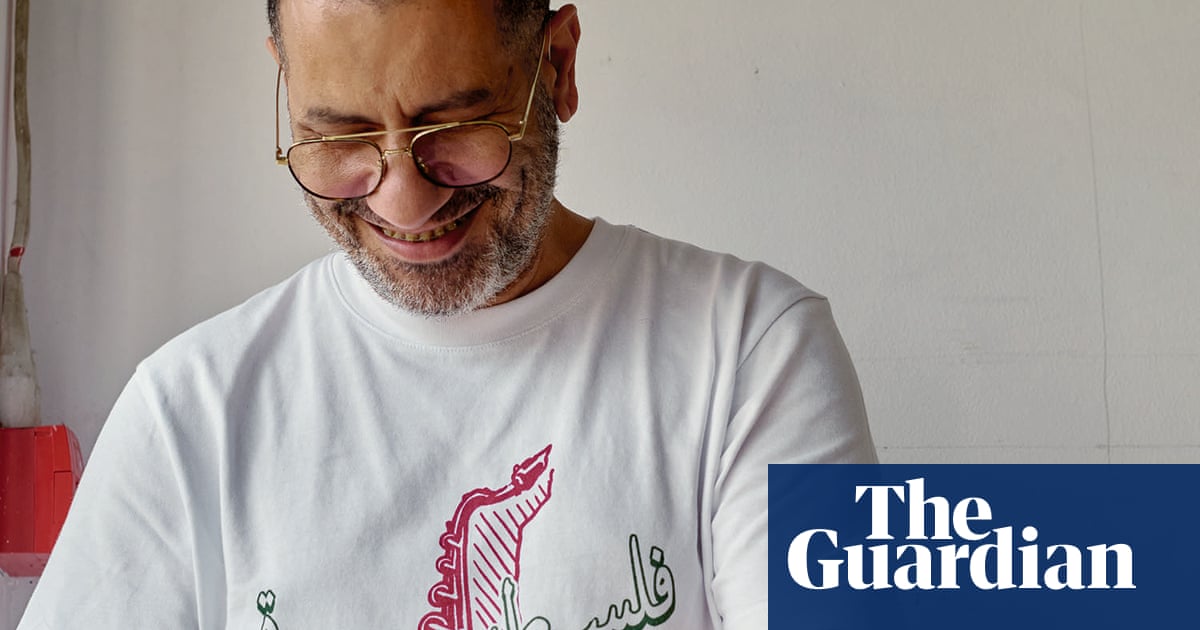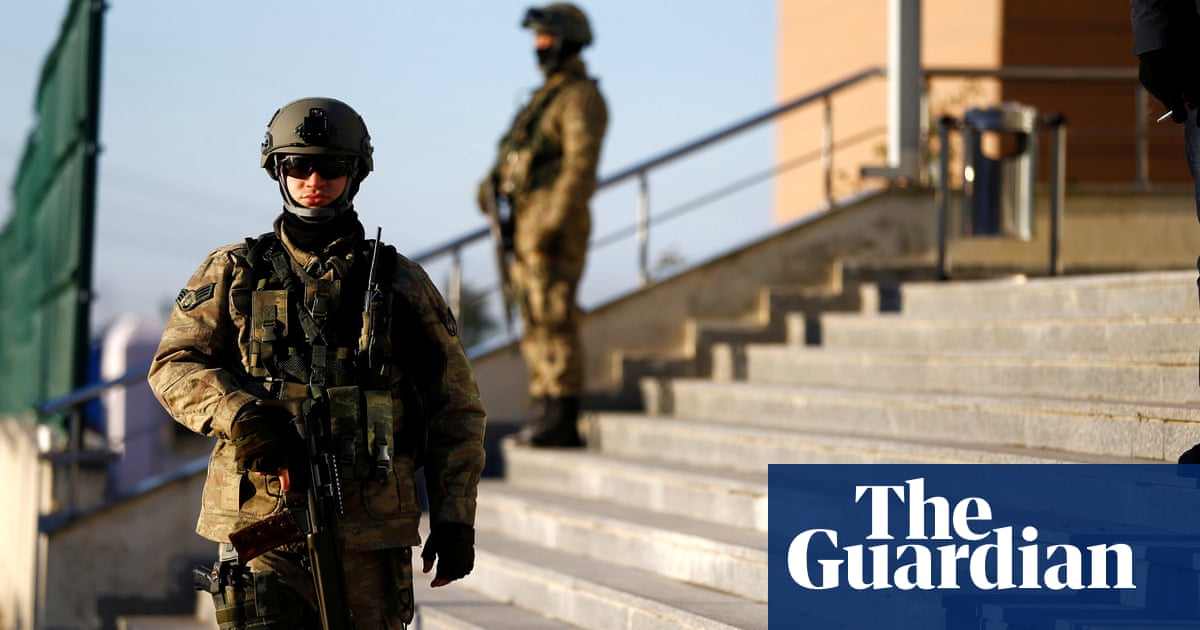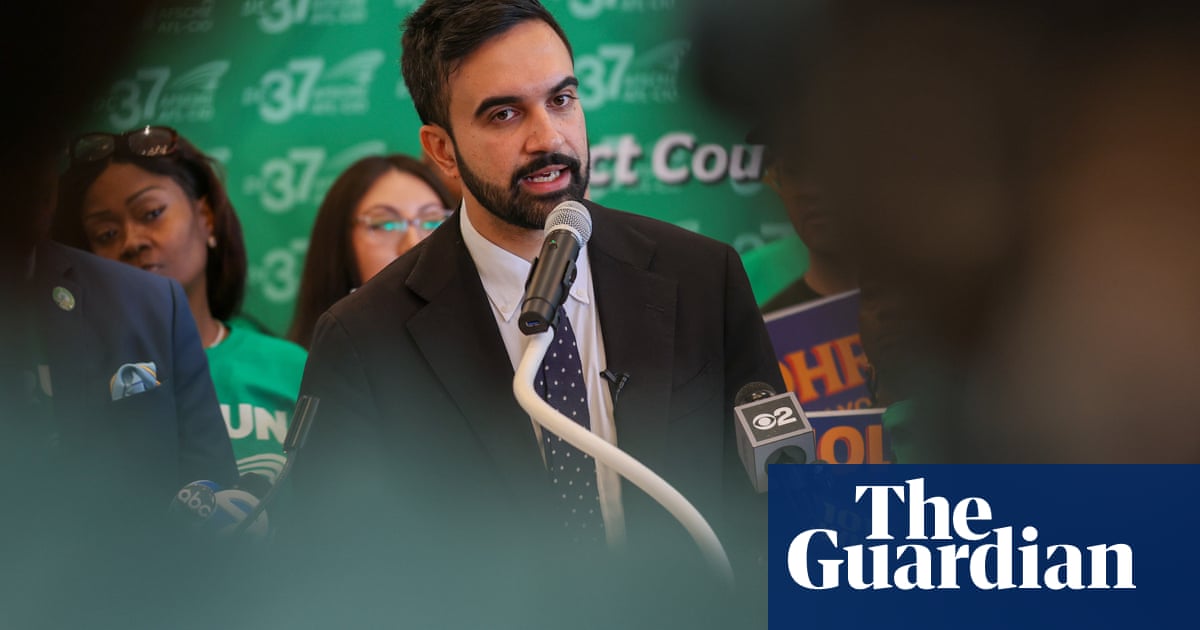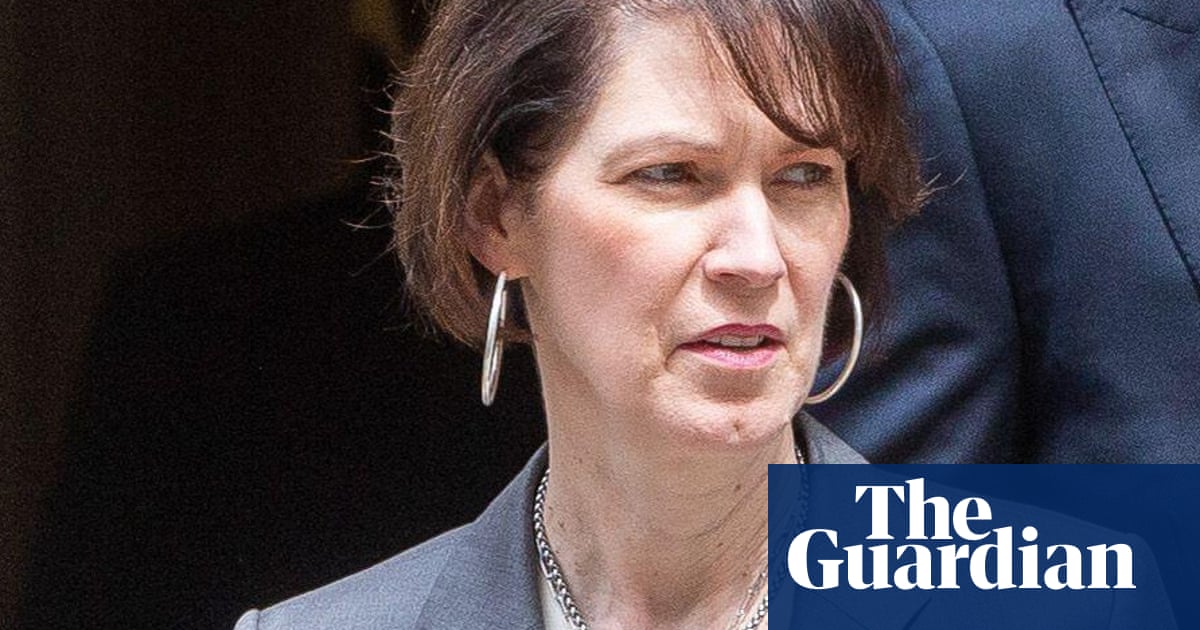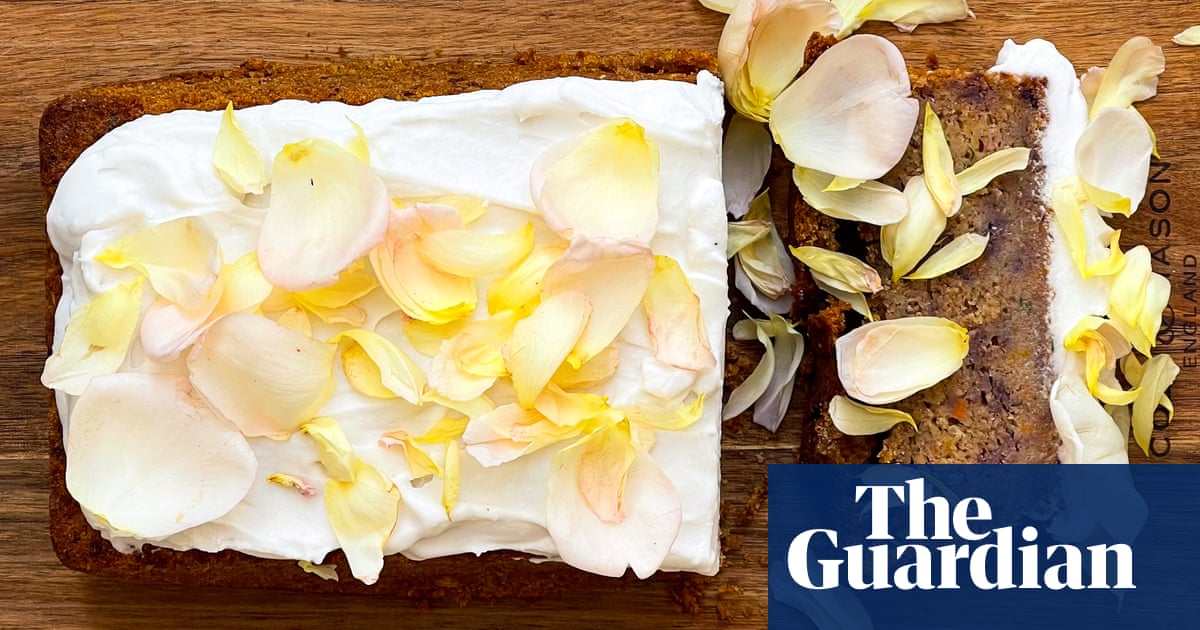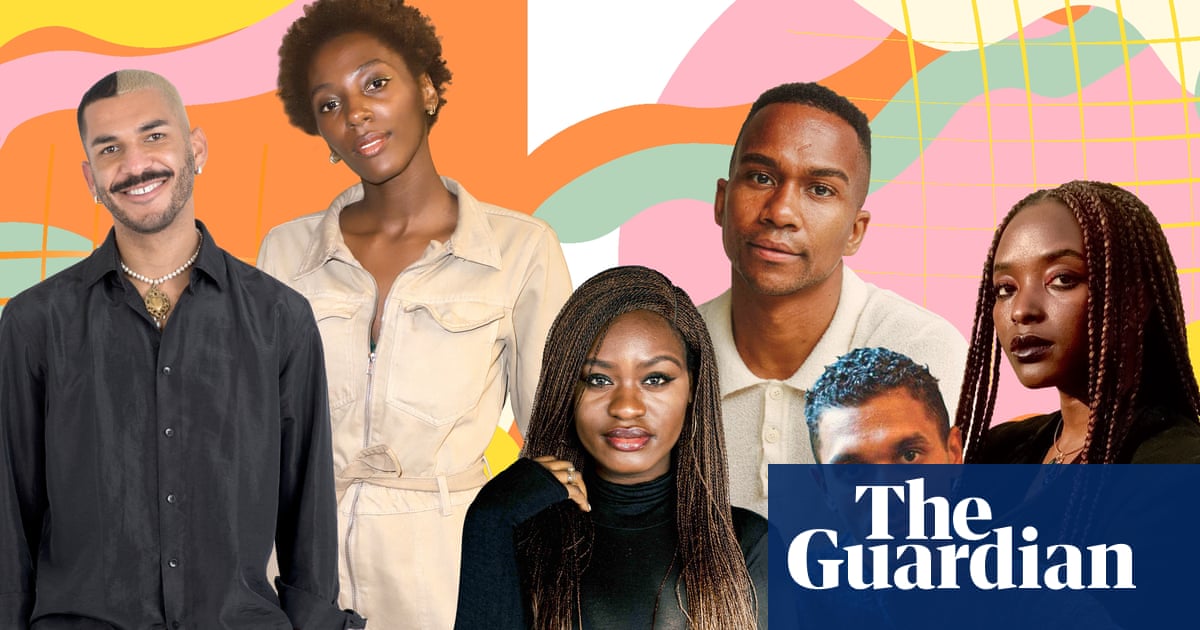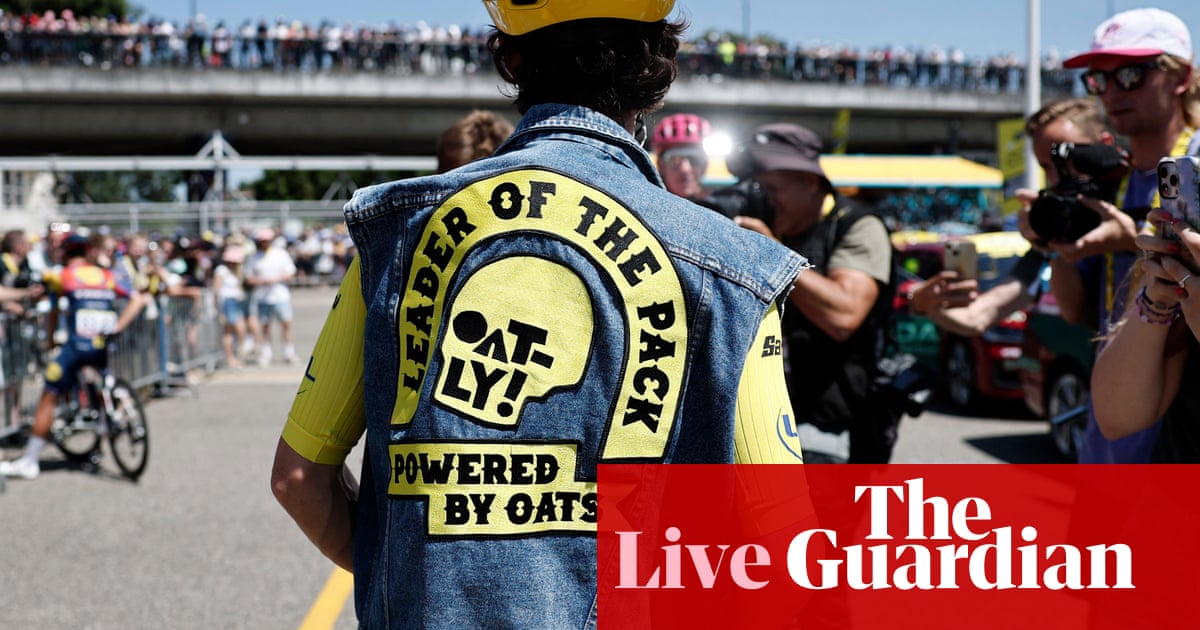My first question for Gina Miller is the same one I put to all interviewees – what did you have for breakfast? Since she’s not a chef or a famous foodie, but the activist who fought Boris Johnson over his Brexit plans, and is now standing for chancellor of the University of Cambridge, this is more a journalistic ritual designed to test whether the recording device is working. But her response is startling.
“I rarely have time for breakfast,” says Miller, who turned 60 this year. “I’m only just able to drink coffee again after my chemotherapy treatment for breast cancer, which is amazing. As my dose has just been reduced, I was able to have the one cup I’m limited to today.”
The only outward clue that she is undergoing the treatment is a new Jean Seberg-style crop. She exudes energy and a zest for life.
“I was diagnosed in September last year,” she says, breezily. “Actually, I should say ‘self-diagnosed’. I knew something wasn’t right with one of my breasts. The GP kept sending me away but after my fourth visit they agreed to a biopsy. I am so glad I listened to my inner voice that all was not well. It turned out that I had an aggressive form of the disease and had to have a very high dosage of chemotherapy from October to February. In March, I had a double mastectomy. I will be on the lower-dose chemo until December.”
Since the recurrence rates are so high, Miller has opted for further surgery to remove her ovaries and fallopian tubes in January. “I don’t want to keep looking over my shoulder to see if it’s going to come back,” she says. “I’m lucky; I’ve had my three kids so I don’t need my female organs. If I get rid of everything, the prognosis is good.”
In February, in the midst of what must have been an exhausting and stressful period, Miller was approached by a group of Cambridge professors who asked if she might be interested in standing for chancellor. She initially said no, believing it was open only to Cambridge alumni, then learned that this was not a requirement. Still she demurred, but not because of her illness.
“I told them I wasn’t interested in taking on a ceremonial role. I only want to do something that has a real impact because I think our country, and the world in fact, is at a particularly traumatic time in history. Cambridge has the resources, and the great, brilliant minds and standing as an institution, to contribute to the world and to us finding a more resilient and sustainable future.”
Researching what scope the chancellor actually has, she discovered that the role includes the power to ensure that university officers are performing as they should be, and to resolve disputes where solutions can’t be found otherwise. “I came to the conclusion that although it has previously been a figurehead role, that could change. The chancellor sits on the university council so could act as chair. I decided I would throw my hat in the ring.”
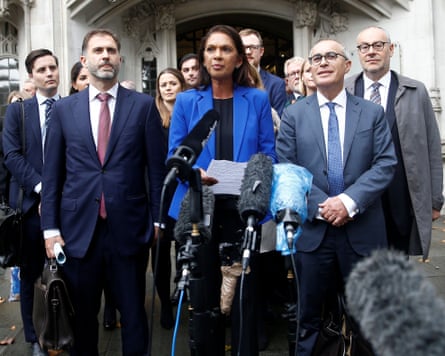
How did she find the energy to do that while undergoing chemotherapy? “It’s true, chemo is gruelling. It’s not only the treatment, it’s the emotional side of it. Your appearance changes. Losing your hair, your eyebrows, your eyelashes, it changes the way people treat you and judge you as a woman. But although I suffered terribly with nausea, I didn’t stay in bed all day. I still tried to work for two to three hours a day and rested a lot, too.”
I tell her the new haircut looks elegant and she laughs. “You never normally see the shape of your head. I think I have a weird double crown. But thank you.”
Miller made her name in 2016 in a landmark challenge to the government’s right to trigger article 50, formalising the UK’s exit from the EU, without a parliamentary vote, and then in 2019, successfully blocking a no-deal Brexit by fighting Johnson’s attempt to prorogue parliament for five weeks. Although you may imagine that a freethinking, remainer-leaning academic hub such as Cambridge might welcome Miller with open arms, her appearance on the 10-strong candidate list has ruffled feathers.
For one thing, there has never been a female chancellor in the university’s 800-year history. To give a sense of the type of individual the role attracts, the previous two incumbents were Prince Philip, who was succeeded in 2011 by Lord Sainsbury of Turville. Apart from Miller, the only other female candidate is the comedian Sandi Toksvig. Also in the running are the former BP head John Browne and the former Labour minister Chris Smith.
In his campaign statement, another candidate, the astrophysics professor Wyn Evans, wrote: “If Cambridge needs a high-profile or celebrity chancellor to be noticed, we might as well give up and rebrand the university as a reality TV show: ‘Keeping Up With the Cantabrigians’.”

Miller is unimpressed: “Weirdly, the candidate who made the Kardashians comment is actually someone who is saying that the university needs to address its bullying and harassment issues.”
There have also been cries of foul play, with concerns over certain candidates spending money on PR and social media, bad-mouthing opponents and using the university insignia to promote themselves, which is against protocol.
In the run-up to the elections, Miller has been speaking to past and present students, professors, researchers and academics at the university. “The word that keeps coming up is complacency. Cambridge really needs leadership. Its ranking has slipped [from fifth to sixth in the world], and it needs to resolve the issues it’s facing. Behind the scenes there is disquiet, be it in terms of discrimination, short-term contracts, intergenerational unfairness and the coming austerity measures.”
She says that throughout her life, education has always been “the anchor that has helped me to survive”. Her biggest inspiration was her father, Doodnauth Singh, who rose from being a petrol pump attendant in Guyana, studying law at night school, to become the country’s attorney general. “Education is what brought me to the UK, to a small boarding school in Eastbourne aged 11. Guyana was going through a dictatorship at the time and so I was sent to the UK to be safe. My parents were deeply passionate believers in the power of education.”
But beyond all these motivations, she has a more pressing reason to want to contribute to the university’s future: “It just so happens that the type of breast cancer I have is a very rare genetic mutation, PALB2, which affects only 1-2% of breast cancer patients. Some of the scientists who discovered it are based at Cambridge University and I’ve got to know them, talking about the astonishing work they are doing and the medical advancements going on there. So I do feel as if I have a debt to repay them.”
That the university needs strategic leadership is not in doubt. According to its internal watchdog, the university ran up a deficit of £53m for 2023/24 “with no clear understanding of what has happened or why”. It is expected to report a £47m deficit for 2024/25 and cuts of 5% have been instigated across the institution.
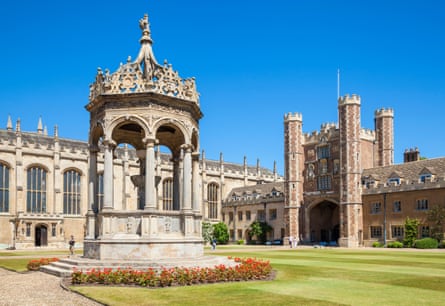
Cambridge has also been ranked the worst university in the country for the support it offers its disabled students, according to a recent study. “That is not good, especially when you have so many neurodiverse individuals. We need to tap into that brilliance, but that has to come with care and support,” says Miller, whose eldest daughter, now 37, has severe special needs.
One of the biggest issues she is keen to address is wellbeing and safety support for students and staff. “There is a lot of pressure on individuals to perform in a way that excels at every level. But not much focus on supporting people to get there.”
She says that she would advocate for each college having a properly trained psychotherapist and wellbeing support teams. “This isn’t just for students, it’s for staff. I’ve spoken to lots of young female researchers, especially those from ethnic minority backgrounds, about microaggressions and misogyny that is going on. They need an independent person to talk to. All schools and corporate environments offer this. Why doesn’t Cambridge University? It’s a false economy to run away from this.”
Miller has very good reason to get behind this cause. In 1987, two months before she was due to sit her final exams for a law degree at the Polytechnic of East London, Miller was attacked by a group of four Asian men on campus.
Even 38 years on, she is still visibly upset recounting the events of that night. “It happened on campus. It was cricket season and India had just played Pakistan. The Asian student societies were all celebrating. I had been studying in the library and when I left, I was intending to go to Mile End tube station. Four men spotted me. They had wrongly identified me as an Indian woman and accused me of dressing and behaving too western. They had seen me with Adrian, my white boyfriend. They attacked me.” She pauses, distressed. “I was raped.” This is the first time Miller has described the incident as rape.
She did not report the crime, nor did she tell anybody. “Like many cultures, in my community there is a lot of shame associated with crimes like this.”
She stopped attending lectures. “I was completely broken and dysfunctional for at least seven months, probably a year. In my mind, I was going to go back to study when I felt better. My dream had always been to follow in my father’s footsteps, to become the best goddamn criminal barrister there was. Or maybe I’d go into family law. But after the attack, my dreams were shattered. In the end, unsupported, I just couldn’t face going back.”
Instead, she moved to Bristol to set up a photographic business with Adrian, who became her first husband and with whom she had a daughter when she was 23. Later, she went to study marketing at the University of North London. Ironically, 30 years after she left the Polytechnic of East London (which became the University of East London in 1992), it awarded her with an honorary doctorate of laws in 2017.
In her memoir, Rise, Miller describes feeling an acute sense of “identity limbo” when she started law school. I wonder if this might explain the drive behind her hyperactive CV. She has campaigned on domestic violence, modern-day slavery and online abuse, as well as launching numerous business ventures. In 2024, she stood as a parliamentary candidate for Epsom and Ewell, representing her own political party, True and Fair, but lost her deposit.
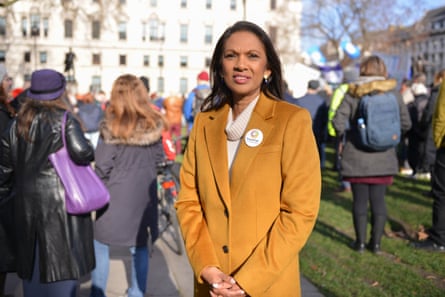
“I’ve had a very eventful life,” she laughs. “Education has always supported me, but life has educated me, too.” Along the way, she escaped a difficult second marriage, taking her eldest daughter with her and later marrying her third husband, Alan, with whom she has a son who is studying medicine and a daughter who has just sat her A-levels.
But since 2016, her life has been lived against a backdrop of horrendous abuse. At the height of the Brexit legal proceedings, her family were under the protection of the anti-terrorism squad. To this day, she is still at the sharp end of public vitriol. Why would she put her head above the parapet again? “I’ve considered this role really carefully. I think I have the bandwidth to do it.” She does add, though, that she is done with politics. “I discovered that it’s not for me. I’m disillusioned with our political system.”
Before we finish, I ask Miller if she ever switches off, and she mentions her love of cooking, sharing with me a foolproof recipe for crispy aubergine, as well as dancing and music. Unexpectedly, she turns out to be an Iggy Pop fan. Was she a punk? “No! But I did like Chrissie Hynde. As for Iggy, I just love Lust for Life. If you want to understand my take on life, that is the perfect song.”

 11 hours ago
5
11 hours ago
5

